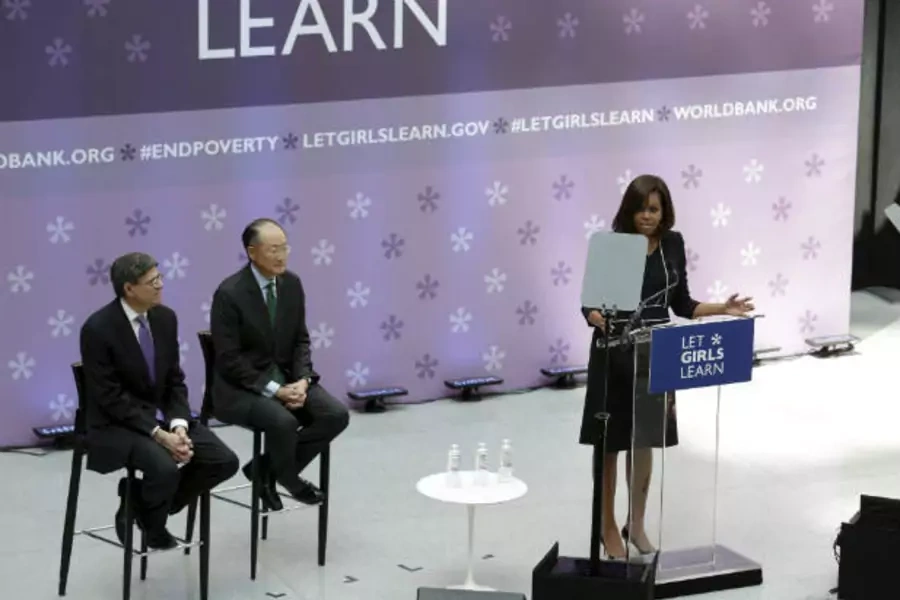Women Around the World: This Week

More on:
Welcome to “Women Around the World: This Week,” a series that highlights noteworthy news related to women and U.S. foreign policy. This week’s post, covering April 16 to April 22, was compiled with support from Anne Connell, Becky Allen, and Alexandra Eterno.
World Bank increases investment in girls’ education Last week, the World Bank Group announced plans to invest $2.5 billion in adolescent girls’ education over the next five years. The commitment represents a major step toward reaching the goals of the Group’s new global strategy for gender equality, and dovetails with U.S. First Lady Michelle Obama’s call to action on the first anniversary of her signature Let Girls Learn initiative, which aims to reduce barriers that prevent adolescent girls from completing their education. A staggering thirty-one million adolescent girls worldwide do not attend school. The World Bank Group’s investment will create new programs to train teachers, administer scholarships, offer conditional cash transfers to promote school retention, and equip schools with toilets and clean drinking water. The bulk of investment will be targeted at sub-Saharan Africa and South Asia—regions with the highest numbers of out-of-school girls. Jim Yong Kim, president of the World Bank, suggested that the investment would bear fruit for generations to come, stressing that “empowering and educating adolescent girls is one of the best ways to stop poverty from being passed from generation to generation.” Ample evidence links girls’ education with economic growth, delayed onset of marriage and pregnancy, and improved health outcomes for girls and their families.
Maternal health at risk in refugee crisis New reports find that, in a notable demographic shift since the refugee crisis began in 2014, women and children seeking asylum in the European Union (EU) outnumber men—and some reports suggest that up to one in ten women refugees are pregnant. Pregnant women and new mothers are among the most vulnerable refugees, as access to pre-natal care is limited along remote routes, miscarriages are frequent, births occur often in unsanitary conditions without medical personnel, and physical exertion contributes to fatigue, heavy-bleeding, and other post-natal conditions. Doctors Without Borders (MSF) and other organizations providing health services also cite a scarcity of formula and other baby supplies along commonly traveled routes. The challenges of providing maternal health care services to refugees en route to Europe are markedly different than those in static refugee communities, which have seen some successes in maternal health care provision: the sprawling Za’atari camp in Jordan, for example, which is serviced by the United Nations Population Fund (UNFPA) and MSF, recently celebrated the safe delivery of its 5,000th baby.
President Dilma Rousseff impeached This week, Brazil’s lower house of Congress voted to pursue impeachment proceedings against President Dilma Rousseff on charges that she violated federal budget laws. Rousseff became the first woman to hold the Brazilian presidency when she assumed the office in January 2011. More than 500 lawmakers offered public testimony of the reasoning behind their votes, much of which detoured from the charges Rousseff faces. A significant number of the legislators leading the charge to impeach Rousseff face corruption allegations themselves. Her presidency has weathered a number of controversies—including strikes of public service employees, the banning of an HIV-prevention campaign, and involvement in the Petrobras scandal that involved kick-backs and corruption—that have contributed to her unpopularity among opposition parties and some civil society groups. The Brazilian Senate will vote by simple majority, likely next month, on whether to hear the trial against Rousseff.
More on:
 Online Store
Online Store